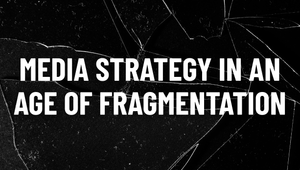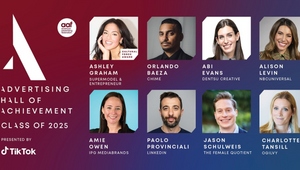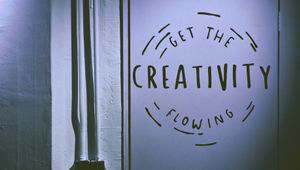
The Bittersweet Taste of Cannes: Celebration and Contemplation

In this chapter of my ‘Insomnia Files,’ a series of nocturnal meditations that take shape when sleep refuses to visit. The glow of neon signs on La Croisette at midnight mirrors the restless hum of my mind tonight. Insomnia, for all its torment, has a peculiar way of bending time—past, present, and future bleed into one another, creating a kaleidoscope of possibility and dread. And so, as sleep evades me, my thoughts drift southward to Cannes, where in just a few days, the industry formerly known as advertising will gather for its annual pilgrimage.
Cannes is not so much a destination as it is a state of mind—a fever dream of ambition, anxiety, and artifice. For one week each year, La Croisette becomes our runway, a place where we cosplay as Mad Men and Mad Women, donning our finest linen suits and oversized sunglasses, playing dress-up in the roles we wish we inhabited. Beneath the glamour of Cannes lies a shared affliction I’ve come to call Cannxiety. It’s the gnawing envy you feel when someone else’s campaign takes centre stage. It’s the paranoia that your clients are secretly meeting with rival agencies over aperitifs. It’s the self-doubt that creeps in after a botched conversation with a head-hunter on a yacht. Cannxiety is the shadow side of celebration, the bitter pill we swallow alongside our rosé. I remember one year, standing in line for a panel, overhearing two executives dissecting a Grand Prix winner. Their praise was begrudging, their envy palpable. I realised then that Cannes isn’t just a festival; it’s a mirror, reflecting our industry’s deepest insecurities.
The irony, of course, is that Cannes is ostensibly about the work—the campaigns, the case studies, the big ideas that remind us why we fell in love with this industry in the first place. And yet, the festival often feels like a bonfire of vanity, a week-long exercise in self-congratulation. Cannes is Cassie from Euphoria: the magnetic, self-destructive character who is easy to criticise but impossible to ignore. But if you can tune out the noise—the rooftop parties, the yacht invitations, the endless panels on AI—you’ll find that the work still matters. In fact, it matters more than ever, because the work reveals the true nature of what we do.
Here’s the thing about Cannes: it glorifies determinism. Every agency, every holding company, every consultancy and tech vendor claims to have cracked the code, to possess the method or technology that guarantees success. The pitches are polished, the promises airtight. But when you look closely at the best work—the kind that wins Grand Prix and lodges itself in the cultural consciousness—you see something entirely different. You see randomness. You see diversity of thought, approach, and outcome. You see humanity.
Great creative work is probabilistic, not deterministic. It acknowledges uncertainty, embraces ambiguity, and allows for multiple solutions to the same problem. It is flawed, frivolous, and fantastic. It is, above all, human. And that’s what makes it irreplaceable. In an age when algorithms threaten to reduce creativity to a formula, the best work reminds us that the magic lies in the messiness—in the leaps of faith, the unexpected connections, the moments of serendipity that no machine could ever replicate.
Cannes, then, is like a cocktail—let’s say a Negroni. Bitter at first, sweet at the end. Like the festival itself, it’s a study in contrasts: ambition and anxiety, creativity and critique. The Campari is contemplation, the bitter realisation that our industry often fails to recognise its own strengths. We flirt with certainty, with efficiency, with the promise of guaranteed outcomes, forgetting that creativity is what sets us apart. Creativity is the antidote to entropy, the force that brings order to chaos. And yet, we undervalue it, treating it as a commodity rather than a craft.
But then comes the vermouth, the sweetness that lingers after the bitterness fades. It’s what happens when you steal a moment away from the meetings and the parties to wander the basement of the Palais, where the work is displayed. Here, amidst the case studies and the sizzle reels, you remember why you chose this career. You remember the thrill of seeing an idea take flight, of watching it connect with people in ways that are neither certain nor correct but undeniably right. You remember that creativity, for all its flaws, is worth celebrating.
And so, for a few days each year, we allow ourselves to look at the work through pink-coloured glasses—or perhaps rose ones, in keeping with the spirit of Cannes. We toast to the randomness, the risk-taking, the sheer audacity of it all. We celebrate the fact that, in a world increasingly obsessed with precision and predictability, there is still room for the unpredictable, the imperfect, the human.
As the night stretches on, I think about the cocktail that is Cannes—a Negroni of ambition and anxiety, creativity and critique. Its bittersweet blend reminds me why I fell in love with this messy, unpredictable industry in the first place. Creativity, for all its flaws, is worth celebrating. Even in sleepless moments, it stirs.
Antonis is speaking on the LBB & Friends Beach as part of a panel on agentic AI on Monday June 16th. Find out more about the session here.
Read more from Ogilvy here.














